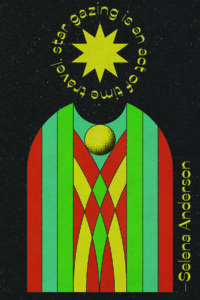
Back in college, I unwisely took an introduction to astronomy class hoping I’d learn something mystical about the formation of stars, how they came to be named, even what secrets they could tell me about my future. The class, however, was much more interested in teaching us how to quantify the universe. It wanted to transform the time it takes to sigh into a unit and shrink the interstellar medium of planets into something like grams, but grams in terms of planets, as determined by a variety of astronomical observations and models. These were horrifying ideas to me, and I may not even be describing them correctly. That’s the extent of my enduring revulsion.
Pretty early on I could tell that I’d wind up making a bad grade in the class, so I tried to redeem myself in obvious ways, like studying astrology—the subject I’d meant to take in the first place.
There’s a website about constellations and the zodiac that I like partly because it looks as if it hasn’t been updated since the 90s. Imagine being that focused and carefree. In order to put some parameters around your life’s trajectory, you tell the website the location of your birth and the exact time you came to be. For me, that’s Houston, Texas at 2:00 p.m., just after my mother’s favorite soap opera had gone off. Hit enter and a short analysis appears.
My designated lucky star is located six degrees from midheaven, which seems close to me. It is named Gienah, pronounced Gina, meaning “wing” in Arabic, and is one of the oldest and brightest orange giants in our galaxy. Gienah represents the right wing of the Cygnus constellation, also known as swan of the gods.
Important men are always naming animals or at least naming unquantifiable space matter after animals. Picture Ptolemy mid-act, as he is captured in the uncredited baroque drawings that make up his Google search. He wears a steel helmet, has parted wavy hair, and thanks perhaps to some tenth-century pomade, a beard of the same texture. He holds a ruler that looks like a cross and seems to move his free hand in a priest-like gesture up and to the left, toward a trio of stars. The many waves of his forehead suggest intelligent brooding, which seems pretty appropriate to me since he is doing the work of naming constellations.
Ptolemy christened my constellation after any number of dead sons named Cygnus. There’s Cygnus the son of Aries who foolishly challenged Hercules to a duel—and died. There’s Cygnus the son of Poseidon who fought on the Trojan side of the Trojan War—and died. And there’s Cygnus son of Helios who had an accident while riding his father’s chariot across the sky—and died. Postmortem, the gods stepped in, transforming most of these guys into swans.
The symbolism can be aggressively clear if you want it to be. If in life these young men tended to overreach their limits and get in over their heads, in death they became a bit more self-possessed. These myths also call to mind other myths of self-improvement. Maybe you can change, but you have to change everything including your genus and species. And even then, nothing can be done without celestial intervention, without grace.
In times of excruciating uncertainty, I catch my eyes drifting up to the stars. I find myself searching for the most popular constellations as well as the international space station, and I remember something interesting the professor of that astronomy class once said in lab about how star gazing is an act of time travel. When you look at the stars, they tell you what they were like thousands of years ago. When you look at the stars, you’re seeing the past. Maybe it should have been embarrassing to stand around with classmates, basically strangers, and stare at stars that may have burned out way before we were even a dream, but everyone was doing it. And we projected a sense of hope too.
Selena Anderson is our 2020 Emerging Texas Star Honoree and will be a contributor for The Constellation Challenge, an immersive postcard-writing experience launching on November 1, 2020. You can read more about how to participate here.